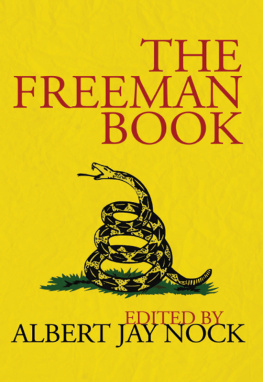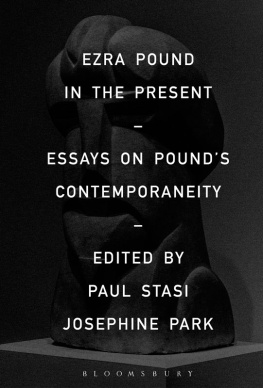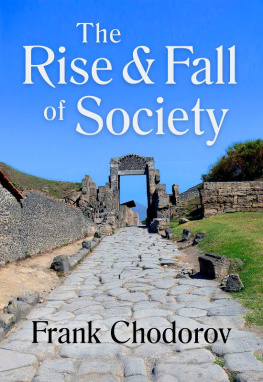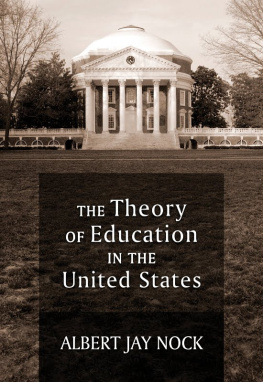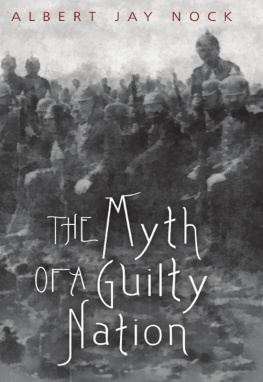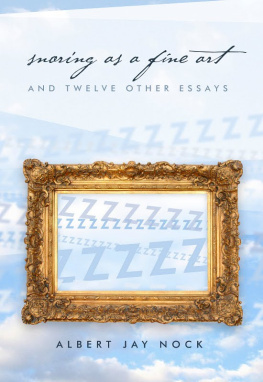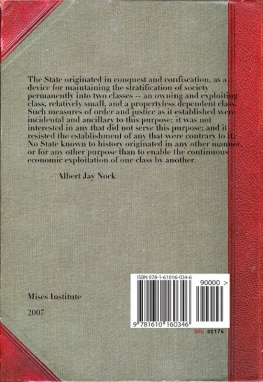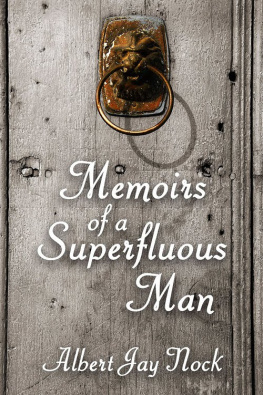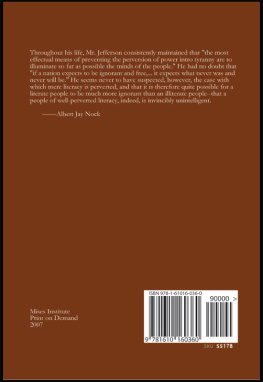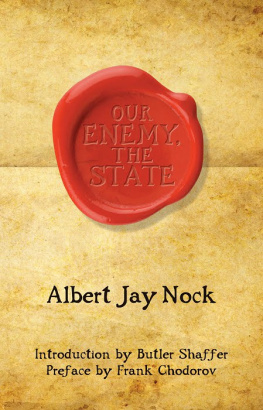The Freeman Book
Typical editorials,
essays, critiques, and other
selections from the eight
volumes of the Freeman
19201924

NEW YORK B. W. HUEBSCH, INC. MCMXXIV

COPYRIGHT, 1920-1924,
BY THE FREEMAN, INC.,
THE FREEMAN CORPORATION
COPYRIGHT, 1924, BY
B. W. HUEBSCH, INC.
PRINTED IN U. S. A.
The Freeman
March 17, 1920March 5, 1924.
Founded by HELEN SWIFT NEILSON
THE following were associated in the editorial conduct and production of the Freeman during its four years or a considerable part of that period:
Francis Neilson
Albert Jay Nock
B. W. Huebsch
Van Wyck Brooks
Suzanne La Follette
Walter G. Fuller
Geroid Tanquary Robinson
Emilie A. McMillan
Harold Kellock
William MacDonald
Lucie D. Taussig
Helen McLeod
AN EXPLANATION
The laudable ambition to compress the best of eight volumes into one book of conventional length proved impossible of adequate fulfillment. Of the thousands who read and loved the Freeman none will agree with the selection here presented; but none who tries to prove how much better he could have done the job will withhold sympathy from the one who undertook the task.
It seemed wise to omit most contributions of transitory interest, to choose with a view to variety of subjects, and to give fair representation to the editors, to whom the Freemans unique flavor was due, and to the more frequent contributors. After a careful distillation of the Freemans 208 numbers, those pieces that simply had to go into the book proved to be sufficiently numerous to make exactly four volumes of the size of this one. Distillation was no longer a useful process: no course remained but to pour the liquid away. Almost all long articles went; poetry followed; favorites among middle articles, reviews and editorials splashed on the ground.
Here is what is left! Some of the Freemans highly valued writers are not even represented; and in justice to them it must be admitted that much that was abandoned was as good as what is here offered.
The compiler would fain retreat with frustration and a baffle, and remains only long enough to mention that but for the diligence of Emilie A. McMillan who, during the four years of the Freemans life, seems to have memorized its contents, this enterprise (none of whose shortcomings are to be attributed to her), would not have been carried through.
B. W. H.
CONTENTS
ACCORDING to the chief of police of Waterbury, Connecticut, and also according to the New York Times, certain aliens whom Mr. Louis F. Post would not allow deported, have returned to their haunts in Waterbury; which is press glossary for the mild and unexhilarating statement that they went home.
by Suzanne LaFollette
THE remark of a newspaper-correspondent that the work of the Democratic Convention was being guided by a well-balanced mind, reminded this paper of Artemus Wards old partner in the showbusiness.
by Albert Jay Nock
THESE are the days that try the stoutest burlap in which cats were ever bagged.
by Walter G. Fuller
IF this paper could get its readers to sit down in front of this one propositionthat the costs of war can not be shifted sidewisewe should have done a thing or two for the cause of international peace.
by Geroid Tanquary Robinson
GREAT as a teacher, great as a citizen, great as a friend, great as a Christian, above all, great as a man; such was James, Cardinal Gibbons.
by Albert Jay Nock
AT the review of the Grand Fleet at Hampton Roads the other day, the breaking waves dashed high, and President Harding rode upon the crest of them, singing a song of sea-power.
by Geroid Tanquary Robinson
THERE is a sharp and pungent quality that is very pleasing to our taste in the recent protest of the British Association of Schoolmasters against the continuance of the teaching profession in England as a sweated trade.
by Walter G. Fuller
WE wish some one would do for this people what Mr. Edgar Crammond did for the English the other day, when before the Bankers Institute he figured out that the British people had to work four months out of the year to support their Government.
by Albert Jay Nock
SOME zealous patrioteer or patriotrine, it appears, recently criticized the Orpheus Choir of Glasgow for not singing the English national anthem at its concerts.
by Albert Jay Nock
THE Brooklyn Eagle reports that Senator Knox, on his arrival in Paris, 11 September, said that our next war, a war of commercial competition with England, has already begun.
by Albert Jay Nock
REPEATEDLY and eloquently, Mr. H.G. Wells has called his readers attention to the fact that during the last century and a half, mans ingenuity in the invention of machines has far outrun his spiritual ability to control and use these machines for his own good.
by Geroid Tanquary Robinson
WE are in receipt of some remonstrances from friends abroad who themselves cautiously favour the Irish cause, saying that we do not understand conditions in Ireland and that if we did understand them, we would be less partisan.
by Albert Jay Nock
ONCE more, say the head-lines, the senators of Cambridge University have grappled with the woman problem, and once more they have denied the wisdom of certain principles to which the Lord adhered when the world was in the making.
by Geroid Tanquary Robinson
THE rage for amending the Constitution will presently leave the poor old document hardly enough of the original fabric to hold the darns.
by Albert Jay Nock
HORACE GREELEY, the venerable founder of the New York Tribune, wrote a scandalously bad hand.
by Albert Jay Nock
NOT long ago, chance brought before us a melancholy prospect which we have since endeavoured unsuccessfully to forget.
by Geroid Tanquary Robinson
THE four-Power treaty has been ratified; and now the Powers concerned may proceed to do precisely what they would do if it had not been ratified.
by Albert Jay Nock
IN Erewhon Samuel Butler portrayed a society that had achieved a measure of freedom and graciousness by smashing all its machines.
by Harold Kellock
WHEN once an idea is really liberated upon the world, it will make its way without let or help.
by Albert Jay Nock
AS we read the news of another lynching, it occurs to us that the violent attack of race upon race is perhaps the supreme futility of life.
by Geroid Tanquary Robinson
WHEN President Hopkins of Dartmouth remarked the other day that too many men are going to college, he might with equal propriety have said that: there are too many human beings on the face of the earth.
by Geroid Tanquary Robinson
WE say, and are prepared to maintain against all argument or cavil, that woman is the superior sex, and that in doing things the right way, the everlastingly fit and appropriate way, she can take the shine out of man every time, and leave him looking like Confederate money.
by Albert Jay Nock
THERE seems to be a general superstition that people who have once enjoyed the privilege of exploiting the labour of their fellows, and themselves have neither toiled nor spun, have somehow a valid claim to be supported in the style to which they are accustomed.
by Suzanne LaFollette
LATELY we have heard it said several times that Russia brought on the great war, and we have been wondering what idea lies back of this expression.

